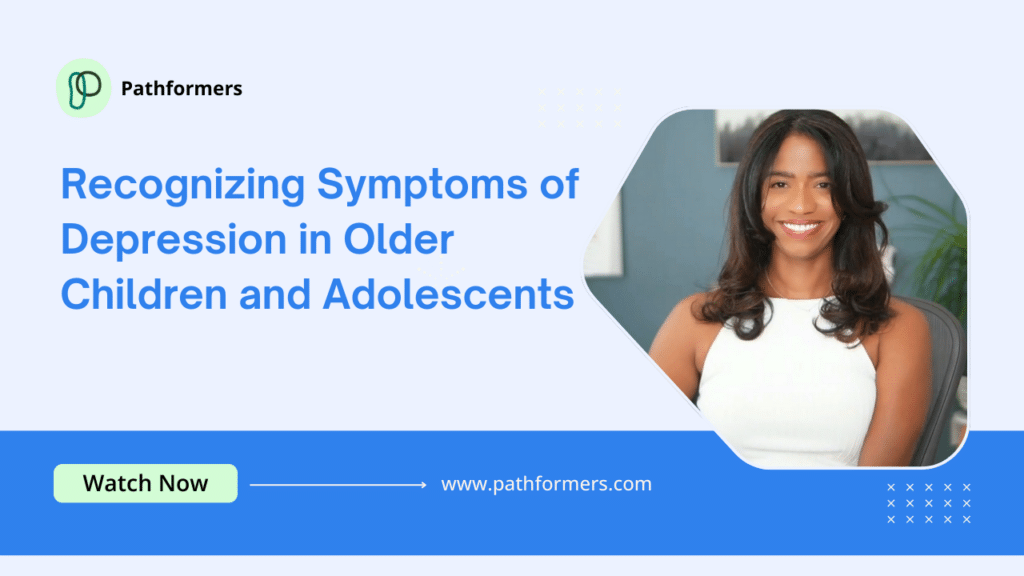Depression in older children and adolescents presents unique challenges. This module explores the symptoms and emotional shifts that can signal depression in school-aged children and teens, with a focus on helping parents and caregivers recognize early warning signs. By understanding how depression manifests at different developmental stages, you’ll be better equipped to offer support and seek professional help when needed.
Recognizing depression in order children and adolescents
Common Pain Points
Lorem ipsum dolor sit amet, consectetur adipiscing elit, sed do eiusmod tempor incididunt.
Mood Swings or Lowered Mood
Parents often struggle to understand their child’s extreme mood swings, especially when triggered by events like failure or rejection. These intense emotional reactions can be signs of depression, often mistaken for typical teenage behavior. Understanding the difference is key to addressing it early.
Loss of Interest in Hobbies and Social Activities
It’s alarming for parents to watch their once-active and engaged child suddenly lose interest in activities they once loved. Whether it’s sports, music, or spending time with friends, this sudden disinterest can leave parents feeling disconnected and unsure of how to intervene.
Withdrawal from Family and Increased Social Media Use
In today’s digital age, teenagers may turn to social media for validation, particularly when experiencing self-doubt. This withdrawal from family interactions and constant comparison to peers online can exacerbate feelings of isolation and depression, creating a deeper emotional divide between parents and teens.
A word from our Families
Module Benefits
Lorem ipsum dolor sit amet, consectetur adipiscing elit, sed do eiusmod tempor incididunt.
Identifying Subtle Signs of Depression
This module helps you spot the often-overlooked signs of depression in older children and adolescents, such as mood changes linked to specific life events and a diminished interest in activities. You’ll learn to distinguish between typical teenage behavior and more serious mental health concerns.
Promoting Open Dialogue About Emotional Health
By recognizing these symptoms early, parents and caregivers are encouraged to have open, empathetic conversations with their children. This creates an environment where teens feel safe to express their emotions without fear of judgment, fostering a stronger support system.
Encouraging Professional Intervention When Needed
Through this module, you’ll understand when to seek professional help if your child shows persistent signs of depression. Early intervention can make a significant difference in managing depression and improving long-term mental health outcomes for your child.
Help Steer Your Child’s Development
Subscribe to our newsletter for exclusive video updates, expert parenting strategies, and the latest insights in child development and mental health.




